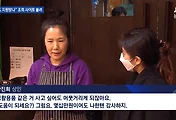복지삭감과 노동자 해고 자유라는 신자유주의 원조국가, 영국보수당도 변했다. 영국 보수당 보리스 존슨이 3개월 특단의 조치를 내렸다.
1. 코로나 전염병(COVID-19) 대책, 영국 보수당의 선택, (3월부터 5월까지) 3개월간 영국 노동자 3천 300만에게 임금의 80%를 보전해, 월 소득 365만원 보장하겠다. 월 소득 365만원은 영국 중위소득보다 더 많다. 영국 역사상 유례없는 정부 투자액, 3500억 파운드 (511조)이다.
영국 보수당이 측은지심 (compassion)이라는 단어를 썼다. 타인의 아픔에 공감을 표시하겠다는 전통적인 가치로 복귀했다. 영국 보수당 수상 보리스 존슨이 떠듬떠듬, 재무장관 리쉬 수낙이 유창하게, 상가, 레스토랑, 공연장,술집 문닫아라, 그리고, 정부는 월별로 새로운 대책을 발표해, 소득 보전을 해주겠다고 약속했다.
정부 소득보전 대상은 영국 노동자 3천 300만이고, 이 중 330만은 자영업자이다. 그 조건은 코로나 위기 기간 동안에 현재 회사가 노동자를 해고하지 말아야 한다.
복지삭감,노동자해고 자유라는 신자유주의 원조국가 영국 보수당은 왜 이런 기존 영국 쌔처 수상의 길을 역행하는 극약처방을 내렸는가?
크게 보면 두 가지 이유가 있어 보인다.
첫번째는 영국 실업 폭등 예상이다. 도이체 방크 경제전문가들이 이번 COVID-19 발발로 영국 경제가 2008년 금융공황보다 더 심각하게 타격을 받을 것이라고 예상했다. 수백만 실직에 따른 실업률이 2배로 증가할 것으로 예상했기 때문이다. 실업에 대한 선제적 예방차원이다.
두번째는, 영국정부가 다른 국가 정부들의 적극적인 현금 지원책에 자극을 받았다. 미국 트럼프의 월1천 달러 지급, 덴마크 정부는 노동자 임금의 75% 지급, 프랑스 정부는 해고자에게 기존임금의 84%에 해당하는 “부분 실업 수당” 지급과 재고용 계획을 약속했기 때문이다.
2. 영국 보수당의 다른 지원책 내용들은, 연말 세금 정산 혜택, 주거비 30% 보조, 기업의 부가가치세 납세 연기 등이다.
(1) 기업 보조: 부가가치세 VAT (300억 파운드에 해당하는 경기 부양책: 4386억원) 납세 연기
(2) 400만 가구 혜택: 연말 세금 정산시: 1천 파운드(146만원) 지급 = 세금 반환
(3) 월세 보조금 : 10억 파운드 (1조 4620억원) 보조금 투하, 현행 월세의 30%에 해당

Coronavirus outbreak
UK government to pay 80% of wages for those not working in coronavirus crisis
Rishi Sunak announces ‘unprecedented’ scheme offering up to £2,500 a month
-
Fri 20 Mar 2020 17.27 GMT-
The government is to pay the wages of millions of workers across Britain to keep them in jobs as the economic fallout from the coronavirus outbreak escalates.
In an unprecedented step for the British government, the chancellor, Rishi Sunak, said the state would pay grants covering up to 80% of the salary of workers if companies kept them on their payroll, rather than lay them off as the economy crashes. The extraordinary payments will be worth up to a maximum of £2,500 per month, just above the median income.
Coming just days after the government announced a business bailout package worth £350bn to help firms cope with the lockdown of large parts of the British economy as the disease spreads, the chancellor described his revamped plan as one of the most comprehensive in the world and “unprecedented in British history”. City economists said the new plan would cost an additional £78bn.
Sunak said: “We are starting a great national effort to protect jobs. We want to look back on this time and remember how in the face of a generation-defining moment we undertook a collective national effort and we stood together. It’s on all of us.”
The chancellor said his commitments were “unprecedented measures for unprecedented times” as he appealed to the public to support each other.
“Now more than at any time in our history we will be judged by our capacity for compassion. Our ability to come through this won’t just be down to what government or businesses do but the individual acts of kindness that we show each other.”
He said there would be no limit on the funding available to pay people’s wages. The payments will be backdated to the start of March, will be up and running within weeks, open initially for at least three months, and could be extended if necessary.
Speaking directly to employers as growing numbers of British firms teeter on the brink of collapse, leaving millions of jobs hanging in the balance, Sunak said: “The government is doing its best to stand behind you. And I’m asking you to do your best to stand behind our workers.”
The government is also deferring the next quarter of VAT payments, which is the equivalent of injecting another £30bn into the economy and is designed to help companies stay afloat, he added.
Sunak was speaking alongside Boris Johnson at the daily Downing Street press conference hours after schools shut to most children until further notice and just after the prime minister announced the enforced closure of pubs, restaurants, theatres and other social venues. The shutdowns will have dramatic repercussions for the economy, and Johnson said the package of financial aid was intended to be temporary, and part of a “joint objective” between people and the government to beat the disease.
“We will do everything in our power to help. Supporting you directly in a way that government has never done before, in addition to the package we have already set out for business,” Johnson said.
How do I know if I have coronavirus and what happens next? – video explainer
The government has come under mounting pressure in recent days to do more to support ordinary people after taking unprecedented steps to help firms as the crisis worsens. Other countries have taken steps to support workers as the global pandemic intensives, including in the US, where the White House is looking at making direct cash payments to American citizens, and Denmark, where the state will pay 75% of workers’ wages.
French workers who are temporarily laid off by their employers due to the coronavirus crisis are entitled to claim “partial unemployment benefit” equal to 84% of their wages, and employers are obliged to keep their jobs open for them.
Sunak did not provide estimates for the cost of the government paying workers’ wages, as the price tag will depend on the extent of firms taking up the offer. There are around 33 million workers in the British labour force, with just over a 10th of them self-employed. While unemployment is currently the lowest since the mid 1970s, it is expected to rise dramatically.
The consultancy Capital Economics said the latest measures could cost around £78bn and save hundreds of thousands of jobs. Without the wage subsidy, unemployment could have doubled to 8% with more than 1.5 million people tumbling out of work, they said.
Instead, the jobless rate is now expected to climb to 6% with about 700,000 people losing their jobs.
The chancellor also announced measures to strengthen the benefits safety net for people out of work, increasing the value of universal credit and tax credits by £1,000 a year to help more than 4m vulnerable households across the country, in a package worth £7bn. He also earmarked £1bn of extra support for renters, ramping up housing benefit and universal credit so the local housing allowance will cover at least 30% of market rents in a local area.
The government has been forced to revise its approach to tackling the Covid-19 outbreak on a daily basis as the increasing severity of the health pandemic and damage to the economy unfolds.
Economists at Deutsche Bank forecast the British economy could suffer the worst recession for a century – outstripping the 2008 financial crisis – with millions of workers losing their jobs and the unemployment rate doubling.
Sunak had initially earmarked £12bn in last week’s budget to soften the impact of the Covid-19 health pandemic, although the chancellor was rapidly forced to come back with fresh measures, while promising to do “whatever it takes” to see the UK through the crisis.




